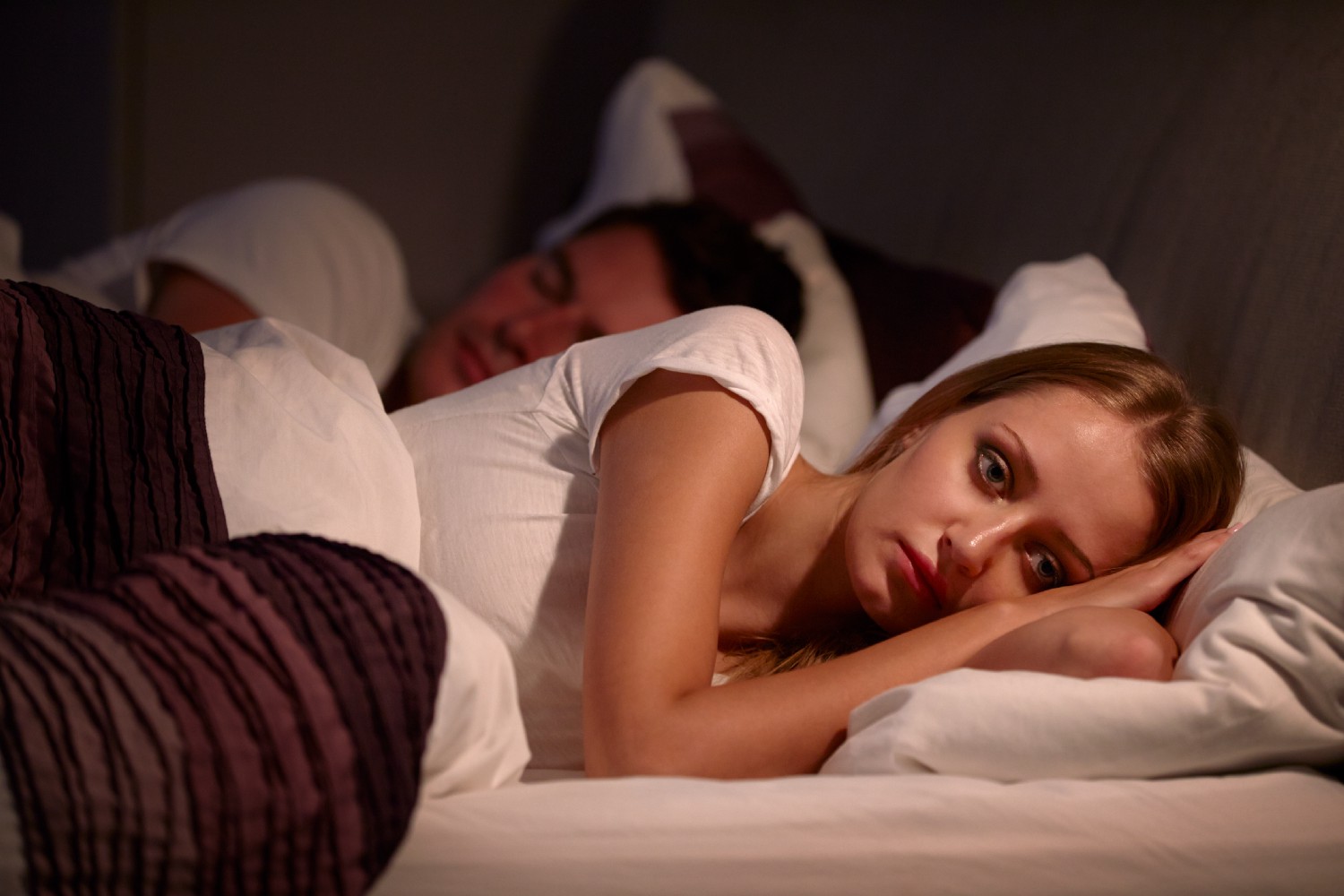We all know that lack of sleep can have a massive effect on your physical, emotional and mental wellbeing. It can affect your ability to lose weight, your stress levels, your appetite as well as your energy, focus and concentration. It also can have a major impact on your hormones, affecting how they are produced, released and regulated in your body.
Even a slight change or imbalance in these little chemical messengers can cause a wide range of symptoms, that negatively impact your health and wellbeing. Our cortisol levels are regulated at midnight so if you’re not asleep then it can affect your production of this stress hormone. High cortisol can mean you struggle to lose weight, have constant fatigue, feel overwhelmed and ultimately lead to burnout.
A poor night’s sleep also affects your blood glucose levels which in the long term can lead to issues with insulin resistance, a condition where your body is unable to handle insulin. The hormones which control our hunger and satisfaction are also regulated while we sleep and if you’re not sleeping well it can mean your cravings and appetite are out of control which leads to overeating and making poor choices about food.
It’s not just important to ensure you get a good night’s sleep so you’re not tired (and grumpy) but also so you can ensure your hormones are balanced. It can become a bit of a vicious circle because imbalanced hormones can also affect your ability to sleep.
So, how can you ensure you get a good night’s sleep so your hormones can regulate themselves and you can reduce fatigue, lack of focus, your appetite and stress levels?
1) Have a Bedtime Routine
Just like you have a routine for your children, it can be really helpful in promoting good sleep patterns as adults, to have a routine for yourself. Calming the mind before bed can be done by reading a book, meditating or a relaxing bath. It can also help to have a regular bedtime and aim to be in bed at the same time every night.
2) Turn off Gadgets an Hour Before Bed
Blue lights from gadgets can affect the production of melatonin, the hormone which controls our sleep/wake cycle. Reduced melatonin makes it harder to fall and stay asleep. Electronics affect our mental activity and the light exposure promotes wakefulness and means our brains don’t wind down for sleep. To reduce brain stimulation, make your bedroom a tech free zone and avoid gadgets at least 30 mins (preferably an hour) before bed.
3) Reduce Stress Levels
When you are stressed, your cortisol levels are high. To promote sleep your cortisol levels need to be low at night, and high stress levels mean it can be difficult to get to sleep because you feel wired. Reducing the stress in your life can make a big difference to your quality of sleep (and ability to get sleep).
4) Cut back on stimulants
Caffeine overload can lead to insomnia, increase the number of times you wake during the night, and interfere with deep sleep because it stimulates the central nervous system. And if you’re especially sensitive to caffeine, just one cup of coffee can disrupt your sleep and make you jittery.
Alcohol is another major sleep disruptor. Although it can help us to get to sleep it can also affect our sleep cycles, increasing the deep sleep we have during the first half of the night, but also the sleep disruptions in the second half of the night.
Reducing caffeine intake to 1–2 cups a day max (and always before 2pm) and try not to drink more than twice a week and ensure you have plenty of water with it to avoid dehydration.
5) Increase sleep promoting nutrients
Certain nutrients can have a really calming influence on the brain which helps promote sleep. Including these nutrients in your diet can help you not only to get to sleep but also that the sleep you do get is good quality.
Magnesium, known as nature’s tranquilliser, and has a calming influence on the nervous system. Deficiencies in this essential mineral can lead to insomnia. Load up on beans, pulses and green leafy vegetables to increase levels. Potassium can also affect your ability to stay asleep as well as causing restless or twitchy legs, and is found in sweet potatoes, spinach and avocados.
Get on the cherry juice to help boost those melatonin levels and get your circadian rhythm back on track to help signal the body to go to sleep. Tryptophan can also help to boost levels so make sure turkey, nuts and seeds are also on the menu.
Join me in my Hormonal Health Support Group on Facebook where I offer advice and guidance on balancing your hormones naturally and you can feel safe to share in a private space, with other women that are going through the same health changes https://www.facebook.com/groups/hormonalhealthsupportgroup/
Rebecca Boulton helps women struggling with hormonal imbalances to figure out the root cause of their symptoms so they can manage them through nutritional and lifestyle strategies.
Originally published at medium.com


